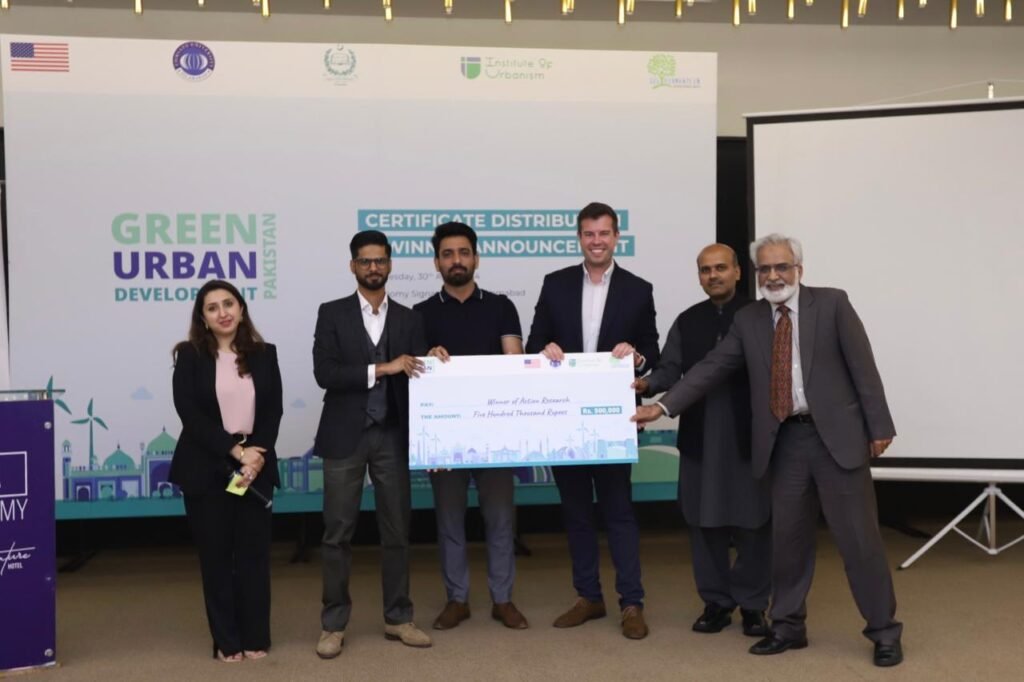ISLAMABAD: US Embassy Representative Mr. Kelly Ryan said, “Through programs like Green Urban Development School, our goal is to encourage learning and collaboration to collectively tackle climate change.”
Experts at the event, Rethinking Urban Development in Pakistan: Harnessing the Power of Youth for Sustainable Cities, said that innovative models such as the Green Urban Development School (GUDS) play an important role in equipping youth with the green skills needed to manage urbanization in nature. . inclusive and weather resistant method.
The Institute of Urbanism (IoU) and the School of Leadership (SoLF) launched a GUDS pilot program at two universities in Islamabad, namely Quaid-i-Azam University (QAU) and COMSATS University Islamabad, with the support of the US Embassy. Through mentoring, exposure visits, and learning opportunities with experts from DePaul University in Chicago. GUDS also provides technical and financial support to two students from each university to carry out business research projects leading to green start-ups, thereby guiding young people to a sustainable future. When the GUDS program is piloted at QAU in 2023, the two winners have built their own projects, which are composting facilities and sustainable roofs built with rainwater harvesting and hydroponic gardens.

Mariam Irfan, Managing Director of the School of Leadership (SoLF), said, “The School of Green Urban Development is an important initiative in promoting sustainable urbanization in Pakistan. By nurturing green skills and empowering our youth to implement innovative solutions, we not only address environmental issues, but also sustainable “We also build tomorrow’s leaders who will drive change”.
Dr. Ejaz Ahmad, Senior Program Officer, IoU, emphasized the need to shift the paradigm of urban development through strategic partnerships, joint efforts, development of green skills and fair transition.
Marfaa Naseem, a GUDS grant winner from QAU, said that since the system was installed in January 2024, they have harvested 48,000 liters of rainwater, saving around PKR 12,000 compared to tanker costs. He also spoke about how the grant helped him set up a rooftop hydroponic garden in Guri town, where he grew about 230 plants in a limited space.
Dr. Jabir Hussain Syed, Associate Professor, COMSATS, said that GUDS provides an excellent platform for students to use their creative minds to develop innovative solutions for urban environmental issues.
A total of four innovative solutions related to urban water management, solid waste management and green infrastructure were presented by GUDS participants at COMSATS who underwent a 2-month capacity building session. After a rigorous evaluation, two projects were selected to be awarded PKR 500,000 each. The first project will focus on green infrastructure and the second on water conservation. Of the two, projects that show greater potential for growth at the end of two months will receive further technical and financial support.




















